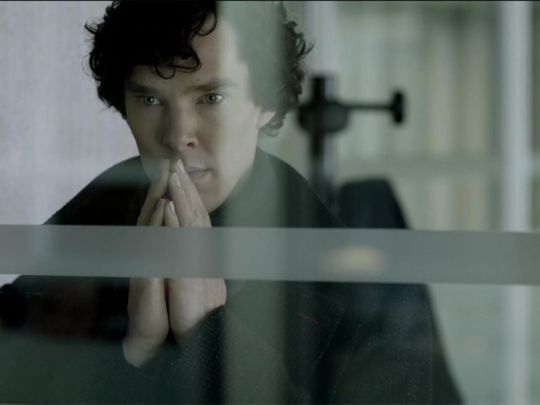
Have you ever wanted to think like Sherlock Holmes, the fictional detective created by English writer Arthur Conan Doyle? It’s possible!
Click start to play today’s Spell It where you would need to “deduce” 45 words from the letters provided.
Since his first appearance in Doyle’s stories in 1887, Holmes has been responsible for a lot of hits in the film industry – the Guinness Book of World Records credits him as the most-played movie character in history (some 200 actors have played his role). He’s also considered the paragon of clear, critical thinking.
According to a July 2014 report in US-based business news website Business Insider, it’s possible to develop your own observational and logical skills by taking a closer look at the Holmesian method of inquiry. Here are three tips on how you can do so:
1. Observe the details
Holmes could tell someone had been to a tropical country by observing that their face was darker than their wrists, and therefore not their natural skin colour. So, he doesn’t just see symptoms, he is able to see how they fit together with his powers of deduction. We can do the same by learning to pay attention.
2. Focus on the basics
Holmes’ famous saying, when he successfully solves a case, is that it was “elementary”. He means it was all about the elements or essentials of a situation. In one story, he says: “Before turning to those moral and mental aspects of the matter which present the greatest difficulties, let the enquirer begin by mastering more elementary problems.” Are there similarities with previous cases? What are the facts? There is a lot that can be gleaned from simply looking at the specifics before interpreting the results.
3. Use all your senses
Our senses influence our decisions in ways we don’t even realise. The psychological field of embodied cognition shows how our mental life is a part of our physical life. It’s why a 2008 study published in the US-based journal Science, found that if you are holding something warm in your hands, you are likely to treat the people around you more warmly. Holmes was aware of the importance of using all your senses. He assembled clues not just by looking or listening, but often by smelling or tasting as well! In The Hound of the Baskervilles, he inspected a water mark on a paper by holding it close to his nose and identifying a faint smell of the scent known as white jessamine, which led him to deduce the presence of a woman at the crime scene.
4. Be actively passive
When listening to or observing something, Holmes gave the object of his attention his full focus, often “with closed eyes and fingertips together”. By not fiddling with your smartphone or getting distracted through other means, you can discover nonverbal information that’s being communicated, and not just what’s being said.
5. Give yourself distance
When a case was more difficult than usual, Holmes would occupy his time with another activity, like playing the violin. It might seem counterintuitive, but giving yourself some distance from the problem – even when writing an essay for school, or working on a project for work – can be beneficial. A 2014 study by US-based Stanford University found that walking indoors or outdoors consistently boosts creative thinking – both while the person is walking, and shortly after. It’s why the late co-founder of Apple Inc., Steve Jobs, used to conduct walking meetings, and Meta’s Mark Zuckerberg has been known to hold meetings on foot.
Do you have any tips to become a clear thinker? Play today’s Spell It and tell us at games@gulfnews.com.







